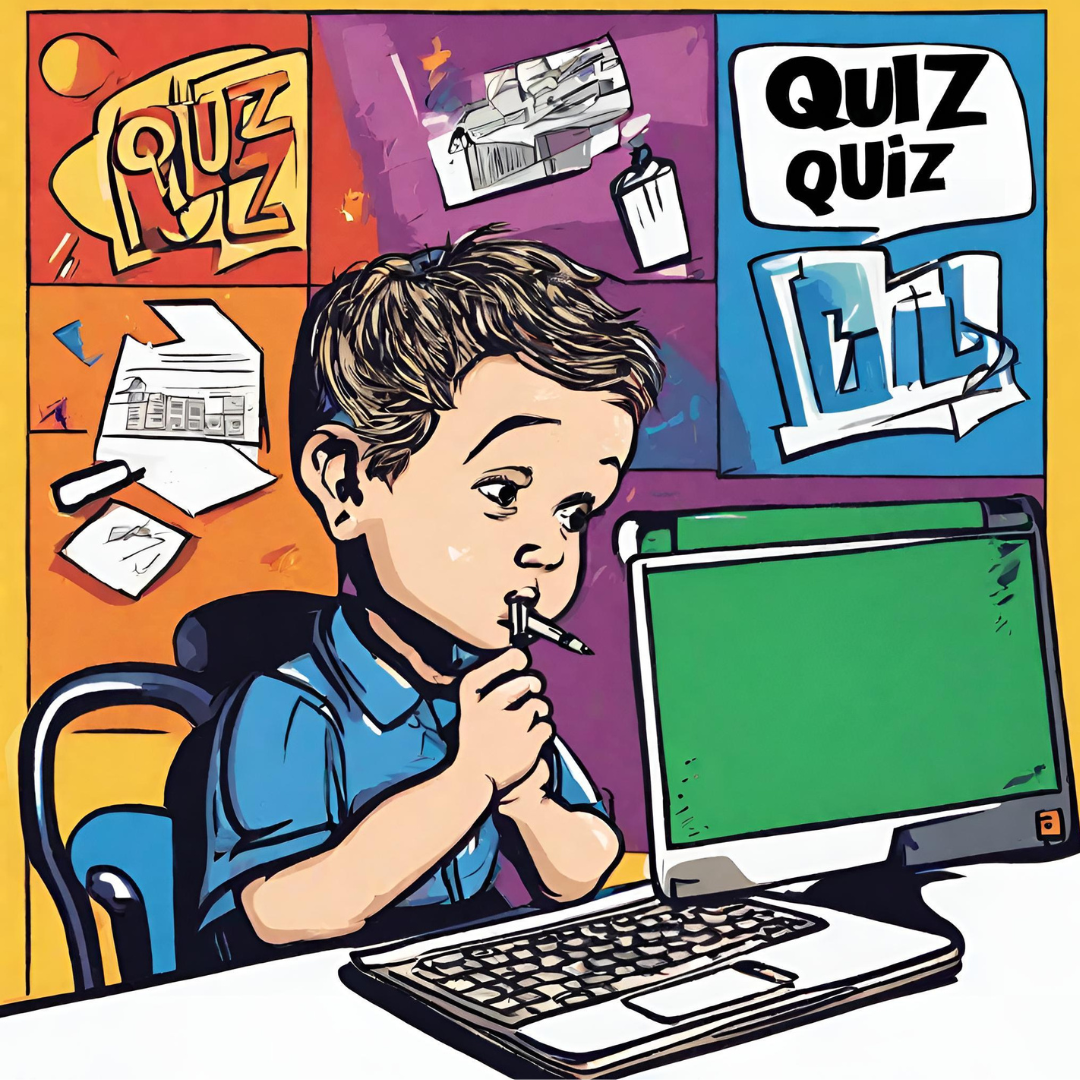Language Use: Formal; Text type: Persuasive

Quizzes have been an integral part of education for centuries, serving as an effective tool for testing and reinforcing knowledge. However, the benefits of quizzes go beyond simply assessing what students know. Research and statistical data reveal that quizzes can significantly enhance the learning process and contribute to better retention and comprehension of material. In this post, we will explore the educational value of quizzes and the scientific evidence that supports their positive impact on learning.
Retrieval Practice Strengthens Memory
One of the primary ways quizzes aid learning is through retrieval practice, which involves recalling information from memory. Studies have consistently shown that actively recalling information through quizzes or self-assessment improves long-term retention. Roediger and Karpicke (2006) conducted a groundbreaking experiment that highlighted the power of retrieval practice. Participants who were tested on material they had studied retained significantly more information compared to those who simply restudied the content.
Spacing Effect Enhances Learning
Quizzes can also be used in conjunction with the spacing effect, a psychological principle that suggests that spacing out learning over time leads to better retention. Research by Cepeda et al. (2006) found that students who spaced their learning and took quizzes at intervals performed better on long-term retention tests than those who crammed. The act of revisiting material through quizzes helps reinforce learning and transfer it to long-term memory.
Quizzes Foster Active Learning
Quizzes promote active learning, which is a key factor in knowledge acquisition. By actively engaging with the material, students are more likely to grasp the content. A study published in the “Journal of Experimental Psychology: Applied” (Hinze & Rapp, 2014) showed that students who took quizzes as part of their learning process scored higher on final exams compared to those who did not. Quizzes force students to interact with the material and identify gaps in their understanding, ultimately leading to better comprehension.
Immediate Feedback Improves Understanding
Quizzes provide immediate feedback, allowing students to correct misconceptions and learn from their mistakes. A study by Butler (2010) in the “Journal of Experimental Psychology” demonstrated that students who received feedback through quizzes improved their performance on subsequent assessments. Quick feedback from quizzes helps students identify areas of weakness and work on them, ultimately enhancing their understanding.
Gamified Learning through Quizzes
With the advent of technology, online quizzes and gamified learning platforms have gained popularity in recent times. These platforms make learning more engaging and enjoyable, which can increase motivation and participation. A study conducted by Hwang et al. (2016) in the “Journal of Computer Assisted Learning” found that students who used gamified quizzes showed increased interest in the subject matter and performed better on assessments.
Conclusion
Quizzes are not just tools for evaluating knowledge; they are powerful aids in the learning process. Research and statistical data consistently support the notion that quizzes contribute positively to learning by strengthening memory, leveraging the spacing effect, promoting active learning, and offering immediate feedback. In today’s educational landscape, where technology and interactive learning platforms are prevalent, quizzes have become even more accessible and enjoyable.
Educators and students must recognize the potential of quizzes to enhance understanding and retention of information. Incorporating quizzes into your study routine can be a valuable step towards more effective and successful learning outcomes. So, get involved with quizzing; embrace it as an opportunity to not only test your knowledge but also to boost your understanding and retention of material you’re learning at school.
Regards, Debra
